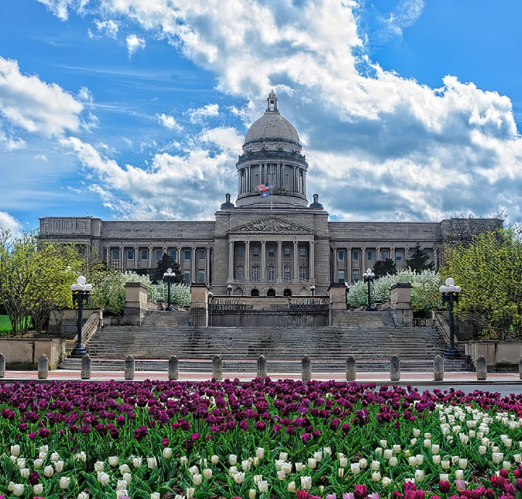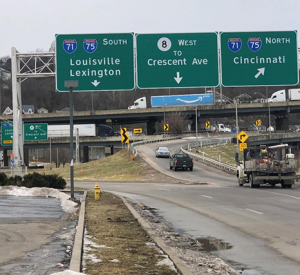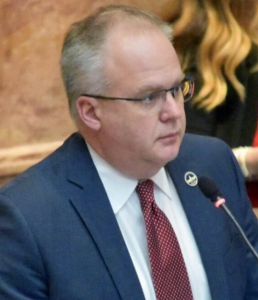By Jack Brammer
NKyTribune reporter
Another Kentucky law-making session has ended and the state’s citizens are sifting through what was done that will affect their lives.
Some have emerged from the 2022 General Assembly with big victories. Some have seen their goals dashed and will have to regroup and try again next year.
Here’s a look at some major winners and losers of this year’s legislative session.
WINNERS
State workers and legislators

After years of no salary increases, state workers are getting a raise – 8 percent beginning July 1 and additional raises based on a pay study for the following fiscal year.
State social workers will get a $2,400 pay increase in addition to the across-the-board raises.
Kentucky State Police troopers will receive a $15,000 raise, and starting pay for sworn officers will increase from $40,000 to $55,000 a year.
Kentucky State Police is experiencing an unprecedented shortage of troopers, with its lowest number in more than 30 years. The agency is staffed with 856 full-time sworn troopers and officers, which is 150 short of its strength in 2006.
State legislators also approved an 8 percent raise for themselves, even after Democratic Gov. Andy Beshear had vetoed the hike. He noted that the increase will also increase their pensions.
The Republican-led legislature also approved hundreds of millions of dollars for full contributions for public pensions, plus extra cash to help pay down the pension systems’ $26 billion in unfunded liabilities.
Tax changes

Lawmakers started lowering the state’s income tax rate while expanding the 6 percent sales tax to cover more services.
The first 0.5 percent rate cut in the income tax is expected to start this year. Certain triggers, such as a strong state reserve trust fund, will allow the income tax rate to drop by 0.5 percent increments from its current top rate of 5 percent.
Services now taxable include cosmetic surgery, telemarketing, photography, research polling, and bodyguard services.
Taxes will be imposed on ridesharing services, such as Uber and Lyft, and electric vehicles. Electric vehicle owners will pay an annual $120 ownership fee. Owners of hybrid vehicles and electric motorcycles will pay a $60 annual fee.
Full-day kindergarten
State money will be available to cover the full cost of all-day kindergarten at every public school district in the state.

School control
School superintendents will have more authority to set curriculum and hire principals, taking power away from site-based decision-making councils.
Public schools will have to teach in middle and high school American history classes required documents.
Right-to-Life advocates
Abortion pills by mail will be banned. Minors seeking an abortion will have to get parental consent.
Abortions will be limited to first 15 weeks of pregnancy. A new state system will keep track of all abortions administered in the state, including the names of performing physicians.
The ACLU of Kentucky and Planned Parenthood already have filed suit to stop these actions, saying they are unconstitutional.
Charter schools
After approving charter schools in 2017, Kentucky this year authorized public funding for them.
The money will come from per-pupil funding from local school districts, prompting critics to charge that will hurt public schools.
Pilot programs for charter schools will start in Northern Kentucky and Louisville.

Library control
County politicians will be able to choose who serves on library boards and veto their library spending.
Library board members have been appointed by county judge-executives but only from a list of finalists approved by the state.
College athletes
Athletes in college can earn money from Name, Image and Likeness agreements.
Universities will have to educate student-athletes on contracts, negotiations, and potential tax implications of their deals.
Legislative power
The legislature said the governor and any other constitutional officer except the attorney general could not use public dollars to challenge the constitutionality of any bill it passes.
It also gave its Government Contract Review Committee the right to veto executive branch contracts. Its role has been advisory.
Beshear sued to stop them and Franklin Circuit Judge Thomas Wingate this week temporarily blocked the legislative moves.
More scholarships
People with certain low-level felonies will now be eligible for KEES postsecondary scholarships. That money comes from state lottery proceeds.
State parks
The state budget will have $150 million for a major overhaul of the state parks in 2023-24.

Alcohol servers
Persons at least 18 years old will be able to serve alcohol or work in alcohol distribution warehouses as long as they are supervised by someone at least 20 years old.
Voting options
Early, in-person voting will be available for at least eight hours between 6 a.m. and 8 p.m. on the Thursday, Friday and Saturday prior to an election.
Nursing shortage
The ongoing nursing shortage is stressing Kentucky’s health care system. Arbitrary enrollment caps in nursing programs have been removed as well as red tape that makes nurses’ jobs more difficult to fill.
Covington’s Life Sciences Research Lab
Covington wanted $10 million for a start-up research lab for the emerging industry of biotechnology. It got $15 million.

Northern Kentucky infrastructure
Kenton County will receive $924,650,000 in funding for road and infrastructure projects.
This includes $855 million for the construction of a companion bridge to the existing I-75 Brent Spence Bridge over the Ohio River between Covington and Cincinnati,
Other projects in Kenton County include:
• $11.3 million to improve safety and reduce congestion on KY-536 from KY-1303 to Williamswood Rd/Calvary Drive.
• $5 million to improve safety and reduce congestion on KY-536 from Williamswood Rd/Calvary Drive to KY-17.
• $3.5 million to improve safety and reduce congestion on KY-17 at the I-275 interchange.
• $3.5 million to improve safety and reduce congestion along KY-1303.
• $2.25 million for West 15th Street to address deficiencies of bridge and approaches over CSX Railroad in Covington.
• $11,000 to install guardrail on KY-3716, $3.79 million to extend Houston Road to cinema property, $575,000 to improve existing alignment with Buttermilk Pike, Orphanage Rd, and US-25, $1.9 million for a bridge project on I-75 at 3rd, 4th, 5th streets in Covington, $1.33 million for a bridge project on Ernest Bridge Drive at CSX Railroad, $12.1 million to address the condition of I-75 from mile post 166.263 to mile post 169.439, $8 million to reconstruct KY-236 (Stevenson Road) from Alice Street to Jacqueline Drive, $2 million to resurface and repair median on KY-17 from Pioneer Park to Kyles Lane, $3 million to widen Kenton Lands Road from US-25 to Riggs Road, $3 million to reconstruct KY-536 to a 4-lane urban section from KY-17 to the Campbell County line, $1.9 million to provide connectivity, improve mobility, and reduce congestion along KY-536 from KY-17 to KY-16, $5.2 million to rehabilitate/reconstruct US-25 from Buttermilk Pike to I-75 (mile post 8.58 to mile post 9.86), $600,000 to construct pavement, slope stability, drainage, and sight distance improvements along the route between Hollyhock Road and Decoursey Pike, and $500,000 to construct pavement, slope stability, drainage, and sight distance improvements along the route between Hands Pike and Highridge Drive.
LOSERS

Public school teachers
While state workers got a state pay raise, the legislature said local school districts could decide if they wanted to provide teacher raises. Lawmakers contended they included enough money in school funding if districts wanted to do this.
Funds to increase school funding went from the current $4,000 per student to $4,100 per student in the next fiscal year and to $4,200 in the following year.
Beshear wanted a mandated state raise for teachers.
State-funded preschool programs
Gov. Beshear proposed pre-school kindergarten for 4-year-olds. The legislature balked. Senate President Robert Stivers said on Kentucky Educational Television that his children did not have pre-school kindergarten and they turned out fine.
Transgender students
Transgender girls and women in Kentucky will not be able to compete in girls’ and women’s sports from sixth grade through college.

Adam Koenig
Sports betting
Rep. Adam Koenig, R-Erlanger, worked until the final day of the legislative session to legalize sports betting in Kentucky.
His efforts failed. All the states that border Kentucky except Missouri allow sports betting.
Medical marijuana
The state Senate is not yet convinced on legalizing medical marijuana. The legislature did approve a Cannabis Research Center at the University of Kentucky.
Poor people
Public benefits for the poor will be lowered.
The length of time that unemployment insurance will be available will shrink from 26 weeks to 12 to 24 weeks, determined by an indexing formula based on unemployment trends.
There also will be more restrictions to the state’s food stamps and Medicaid programs.
Conversion therapy
A bipartisan group of lawmakers wanted to ban the controversial method used to try to change someone’s sexual orientation or gender therapy. They failed.
Race-based hair discrimination
A bill, known as the CROWN Act, would have made it illegal to discriminate against a person for wearing hairstyles like braids and twists. It did not win legislative approval.
CROWN is an acronym for “Create a Respectful and Open World for Natural Hair.” Some people say they experience prejudicial treatment for their hairstyles.




















The Republicans in General Assembly certainly earned their 8% pay raise and pension boost ( which the so called Dictator/Tyrant Beshear vetoed ) and the veto override they didd to keep it all the while denying school teachers a raise or funding all day KINDERGARTEN! SHAMELESS